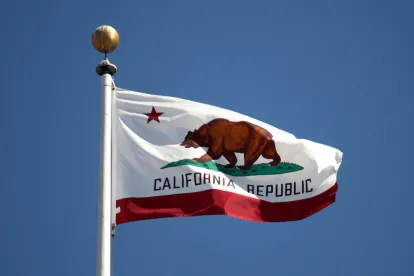In Defend Our Waterfront v. California State Lands Commission (Sept. 17, 2015) __Cal.App.4th __, Case Nos. A141696 & A141697, the California Court of Appeal for the First District upheld the trial court’s grant of a petition for writ of mandate challenging a land exchange with the State Lands Commission in connection with the 8 Washington Street development project in San Francisco. The court held that (i) the petitioners were not required to exhaust administrative remedies due to ineffective notice by the State Lands Commission, and (ii) the exchange agreement was not statutorily exempt from the California Environmental Quality Act (“CEQA”).
Background
The 8 Washington Street project is a proposed mixed use development along the San Francisco waterfront near the San Francisco Ferry Building. The proposed development site includes a parcel known as Seawall Lot 351. Seawall Lot 351 consists of filled tidelands and is held by the City of San Francisco through the Port of San Francisco subject to (i) the common law public trust for commerce, navigation and fishery; and (b) a so-called “statutory trust” imposed by the Burton Act as amended (stats. 1968, ch. 1333) pursuant to which the state granted Seawall Lot 351 to the City in trust for the people of the state.[1]
Since the housing and some of the other uses proposed in the 8 Washington Street project were inconsistent with the public trust restrictions, the project developers and the City proposed a land exchange agreement with the State Lands Commission (the “SLC”) wherein (i) the City would convey Seawall Lot 351 back to the SLC, (ii) the developers would convey a comparable piece of the 8 Washington Street property not subject to the public trust to the City (the exchange property) which would in turn convey it to the SLC; (iii) the SLC would terminate the public trust on Seawall Lot 351 and convey the property back to the City free of the trust, and (iv) the SLC would impose the public trust on the exchange property and convey it back to the City as trustee. Following the removal of the public trust restrictions, the City was to convey the Seawall Lot 351 parcel to the project developers in furtherance of the 8 Washington Street project.
In August 2012, the SLC approved the exchange agreement, and made a finding that the activity was statutorily exempt from CEQA pursuant to Public Resources Code Section 21080.11. On September 25, 2012, Defend Our Waterfront (“Respondents”) filed a petition for writ of mandate challenging the approval of the exchange agreement without requiring CEQA review. The trial court granted the writ, and the SLC appealed arguing that, (i) Respondents failed to exhaust their administrative remedies as required by law, and (ii) the approval of the exchange agreement was statutorily exempt from CEQA.
Exhaustion of Administrative Remedies
The exhaustion of administrative remedies rules for CEQA are codified in Public Resources Code Section 21177. Generally, Section 21177 requires that a party first raise issues during the administrative process prior to resorting to judicial review. However, subdivision (e) provides an exception to the exhaustion doctrine where there was no public hearing or other opportunity for the public to raise objections prior to a project’s approval, or where the public agency fails to provide the notice required by law. The court of appeal affirmed the trial court’s holding that the exhaustion of administrative remedies requirement did not apply because the SLC failed to provide the notice required by law.
Appellants argued that the SLC did provide notice as required by Government Code Section 11125(a), because the SLC meeting agenda was posted online more than 10 days before the hearing and informed the public of the SLC’s intent to approve the exchange agreement. The court rejected this argument on the basis that the meeting agenda did not notify the public that the SLC intended to invoke a statutory exemption to CEQA. In fact, the agenda made no reference to CEQA whatsoever.
Appellants further argued that even if the agenda alone did not provide adequate notice of the SLC’s intention to invoke a CEQA exemption, the staff report, accessible via a hyperlink on the agenda, did provide the required notice. The court rejected this argument for two reasons. First, the public would need to take the additional steps of clicking on the hyperlink and reading the staff report in order to discover the SLC’s intention to adopt a CEQA exemption. The court found that requiring the public to take these extra steps did not satisfy the CEQA notice requirements. Second, the staff report was posted to the agenda less than 10 days before the hearing, and thus the staff report itself could not satisfy the 10-day notice required by the Government Code. Lastly, the court rejected Appellants argument that Respondents had actual notice because one of its members had read the staff report prior to the hearing. The court made it clear that subdivision (e) of Section 21177 does not provide that actual notice satisfies CEQA’s notice requirements.
The CEQA Exemption
The SLC found that the land exchange agreement was exempt from CEQA review under Section 21080.11, which states: “This division shall not apply to settlements of title and boundary problems by the State Lands Commission and to exchanges or leases in connection with those settlements.” Appellants took the position that the exemption applied because the land exchange agreement settled a title problem by removing the public trust restrictions. The Respondents argued that the exemption did not apply because the land exchange agreement was not connected to the settlement of a boundary or title dispute. The court agreed with the Respondents.
In finding that the exemption did not apply to the land exchange agreement, the court ruled that the exemption is limited to situations in which the SLC resolves a dispute regarding the title or boundaries of land subject to its jurisdiction. In other words, the court decided that the term “problems” used in the exemption necessarily means “disputes.” The court reasoned that the stated purpose of the land exchange was to remove an impediment to developing the 8 Washington Street project, and while the public trust restriction posed an economic “problem” for the private development, it did not constitute a title or boundary “dispute” as required by the exemption.
Significance
In many areas, but particularly in San Francisco, the state’s sovereign ownership in filled tidelands is a relic of 19th century surveys and land sales that were intended to promote filling out to deep water to provide access for shipping and to promote maritime commerce. However, the resulting parcelization does not meet modern development needs, nor does it necessarily promote desirable public trust uses such as public access, recreation and open space. Further, the haphazard approach to tidelands sales in the 19th century left behind a plethora of title and boundary disputes not easily resolved by traditional legal means due to the restrictions that attend the state’s use and disposition of its tidelands.
Land exchange agreements have been widely used by the State Lands Commission to (a) facilitate reconfiguration of the state’s sovereign interest in filled tidelands in a way that promotes the public interest in such areas; and (b) to resolve title and boundary disputes. Many of the modern projects along the San Francisco waterfront have required such an agreement. However, this case points up the need when employing this tool to ensure that the record is clear that there is a genuine title or boundary dispute being resolved even if the reconfiguration will provide substantial public benefits on the context of a related development project. Otherwise, the statutory exemption from CEQA is not available.
[1] The common law trust and the statutory Burton Act trust are referred to hereinafter collectively as the public trust.




 />i
/>i

